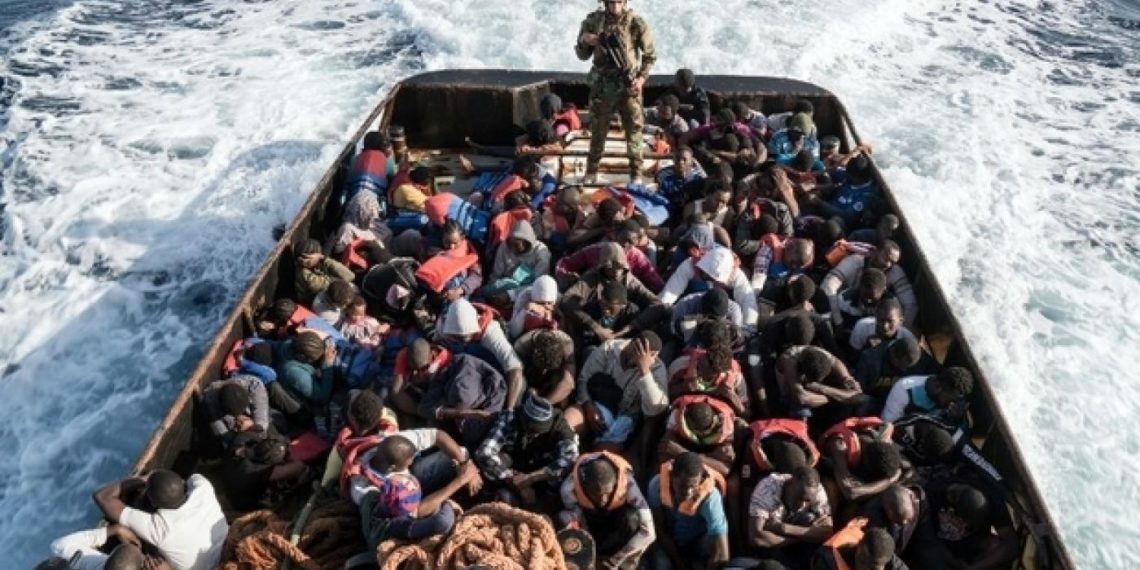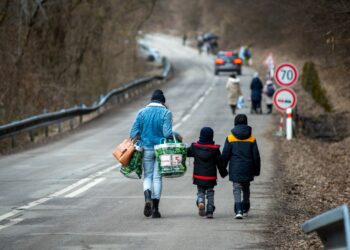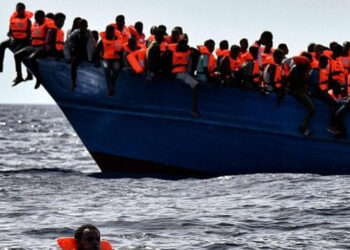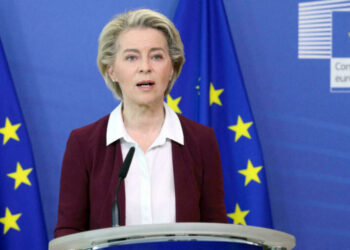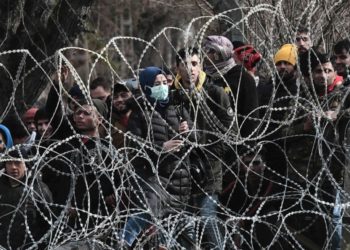After Libya’s Tajoura detention center was hit by an airstrike killing at least 53 migrants on July 3, migrants have now been returned to the center. The approximately 200 migrants taken back over the past days include those intercepted by the E.U.-funded and trained Libyan coast guard.
Indeed, with E.U. support, the Libyan coast guard has been stopping increasing numbers of migrants since 2017 and returning them to the capital. In Tripoli, they are exposed to human rights abuses such as arbitrary detention, torture, starvation, and slavery.
This dark reality of European migration policy exposes tension between the E.U.’s ambitions as a normative power and its perceived self-interest in reducing migration at any cost. This includes making partnerships with authoritarian regimes or fractured, war-torn countries to stop would-be migrants and refugees from reaching Europe.
Libya’s Migrant Detention Centers
For over 100 days now, a war has been raging around Tripoli and northwestern Libya, the corner of the country where migrant detention centers are clustered. Bombing raids occur nightly, and indiscriminate shelling is commonplace in this environment of war.
Because Libya has no regular security sector, militias have become European partners on migration policy. As such, migrant detention centers, many financially supported by the E.U. Trust Fund for Africa, are merely makeshift prisons appended onto existing militia bases. This means migrants are trapped amongst arms cache’s and armories, now in the midst of a warzone.
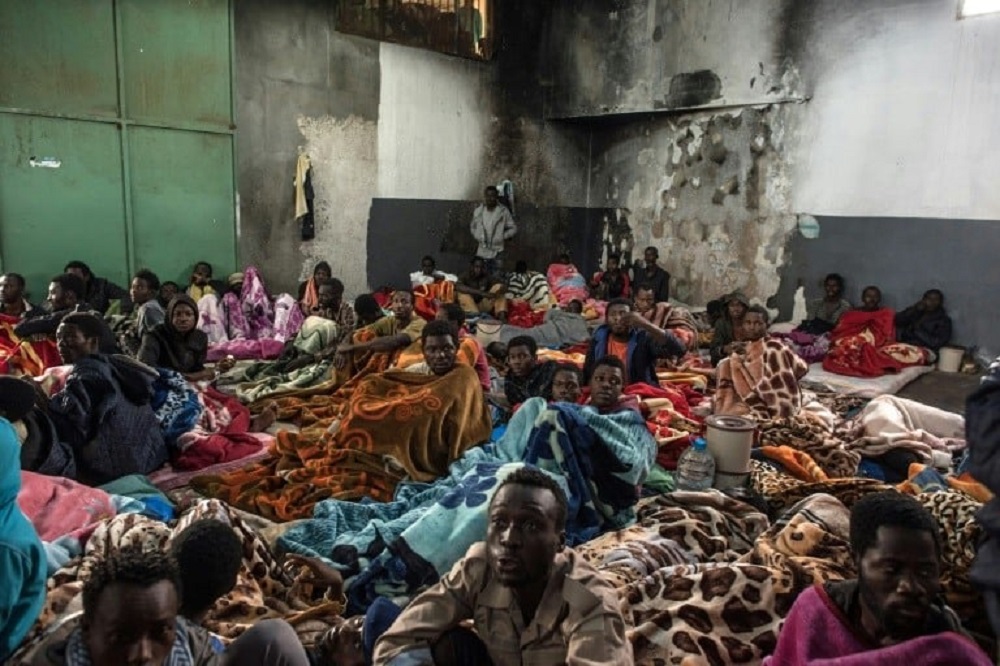
Indeed, the Tajoura detention center is one such camp, adjacent to the barracks of the pro-government militia, the Dhaman brigade, and their weapons workshop. Survivors of the July 3 attack claim that the local militia forced them to work in the armory. If they refused, they allegedly risked being shot.
The presence of this armory allowed it to become a military target in the eyes of military strongman Khalifa Haftar’s Libyan National Army, despite the International Organization for Migration supplying his forces with the coordinates of all detention centers. Indeed, both the armory and the migrant center experienced direct hits in the air-raid. This makes a repeat of that tragedy almost inevitable.
Even if European leaders can ignore this, it remains unclear how migrants and refugees could ever be safe in a country experiencing civil war and lacking a central government.
Costs of EU’s Migration Policies
Some politicians have argued that E.U. migration agreements with countries like Libya and Turkey are a success story, dramatically reducing the number of migrants reaching European shores (over one million migrants arrived in Europe in 2015 down to just over 140,000 in 2018). Yet this policy is not without significant costs.
Firstly, while absolute numbers are down, the progressive delegation of border management and search and rescue activities from the E.U. towards Libya has resulted in an increased rate of migrants deaths, from one death for every 38 arrivals in 2017 to one for every 14 arrivals in 2018, to one for every three arrivals in the first four months of 2019.
Secondly, the E.U. is not a military power. Its role on the international stage is driven by aspirations to be a soft power, promoting democratic reform and human rights. This ideal became perhaps even more pronounced since the election of U.S. President Donald J. Trump. Yet E.U. migration deals with dubious partners are indelibly tainting such symbolic capital and its future potential to support peace and stability.
Thirdly, countries that are the main source for refugee flows such as Syria, South Sudan, Afghanistan, and the Democratic Republic of Congo are also those with poor records on democracy and human rights and are ran by authoritarian regimes.
In the short run, dictators may stabilize the countries they rule through force, but history tells us that there is always a moment when the oppressed try and take control over their lives (for instance, during the Arab Spring or 20 years earlier during the uprisings in the former Soviet Union – both of which led to considerable migration).
It is ironic that E.U. actors now legitimize and stabilize authoritarian countries that may in a not so distant future become theatres of conflict and associated refugee flows.
Indeed, in light of the ongoing war in Libya, we can begin to see growing numbers of Libyan emigration to Europe. Political actors within a realpolitik prism – who are acting based on the pursuit of state interests in a dangerous world – are often convinced that there is always a tradeoff between morality and what is good for their political community.
It is likely that in this case, more moral migration politics would also enhance European interests.
Disclaimer: The views and opinions expressed here are those of the author and do not necessarily reflect the editorial position of The Globe Post.

